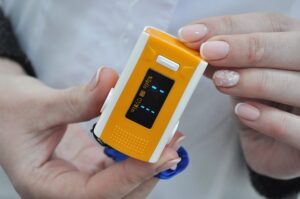
ON INTERNATIONAL ANTI-CORRUPTION DAY, FIGHTING ECONOMIC EVIL
With new standards in the works, ISO joins the fight. [CONSUMERS, MANAGEMENT SYSTEMS, BUSINESS & ANTI-BRIBERY] Corruption threatens national security, economic growth, human rights, jobs,
ISO/IEC 17025:2005 is a company-level accreditation based on the “General requirements for the competence of testing and calibration laboratories” standard released by the International Organization for Standardization (ISO). The standard is divided into two sections: management requirements (which are largely concerned with the operation and effectiveness of the laboratory’s quality management system) and technical requirements (primarily related to the competence of staff and calibration of equipment). The standard also includes quality management standards such as document control and remedial action. This standard serves as the foundation for accrediting body accreditation.
A third-party assesses the laboratory’s quality management system and technical ability in order to earn ISO 17025:2005 accreditation. To retain accreditation, audits are undertaken on a regular basis. Only an approved accreditation authority can grant ISO 17025:2005 accreditation. Accreditation signifies that a laboratory has met ISO17025:2005’s Management and Technical Requirements and is considered technically capable to produce calibration and testing results.
This paragraph covers impartiality and secrecy, which means that laboratory activities must be unbiased and all information gained during the execution of laboratory activities must be kept confidential.
The legal entity that specifies and documents the spectrum of laboratory activities is represented by this phrase. It also describes the management, laboratory activities, organisational and management structure, as well as all personnel’s responsibility, authority, and interrelationships.
This paragraph emphasizes the necessity of providing resources such as personnel, facilities, and environmental conditions, as well as equipment, metrological traceability, and externally provided products and services that support laboratory operations.
The process requirements are deployed as follows, according to this clause:
This accreditation is for all organisations that perform tests and/or calibrations, including first-, second-, and third-party laboratories, as well as laboratories that perform testing and/or calibration as part of product inspection and certification. This international ISO 17025:2005 standard applies to all laboratories, regardless of their size or the scope of their testing and calibration methods. It is used by laboratories to establish their quality, body, and technical operations management systems.
There are numerous advantages to adopting ISO 17025:2005. Although there may be some initial costs associated with becoming ISO 17025 accredited, it is crucial to remember that having the standard in place will give you with long-term benefits, making the work well worth it.
When your laboratory is accredited to ISO 17025:2005; it will gain a good reputation and demonstrate that it has excellent standards, placing it ahead of the competition. Additionally, having a strong reputation among auditors and regulatory bodies will assist the lab’s reputation not only locally, but nationally and worldwide.
The ISO 17025:2005 standard contains tight rules and requires labs to closely monitor their outcomes. The lab’s operational costs are reduced when reliable and exact results are obtained. Money will be saved if retesting is decreased. Overall, the standard establishes parameters for gaining control over lab operations and, as a result, lowering operating expenses.
The accuracy of test results is improved by the validity and appropriateness of test techniques in a controlled lab environment. This ensures quality for both your customers and your lab. When lab testing is improved, you will save time and money by reducing the number of tests required. The standard also includes stringent criteria for instruments and equipment, resulting in fewer repairs and defects.
Because the ISO is a globally recognized standard, lab can simply acquire the trust of their current and potential clients. The ISO 17025:2005 criteria ensure that your lab is running smoothly, consistently, and is committed to delivering the finest findings possible, resulting in customer satisfaction.
ISO 17025:2005 mandates accurate documentation of all operations, modifications performed, errors or discrepancies, and assists with the mitigation of problems, all of which contribute to the lab’s stability and improved outcomes. The employee becomes more accountable when correct documentation is followed.
Staff members must receive training as part of the standard. The workforce has clear tasks and duties, and they are improving their knowledge and diversifying their skill sets. Employee morale is typically boosted as a result of this, and they are given the training they require to be competent.
As a result, ISO/IEC 17025:2005 is the most widely used international standard for determining laboratory competence and quality. It also promotes collaboration between testing laboratories and other agencies by ensuring that results are accepted more widely across countries and organisations. Without the need for additional testing, test results and Certificates of Analysis (CoA) can be accepted by organisations in different nations, resulting in improved international trade. Furthermore, while obtaining ISO/IEC 17025:2005 accreditation might be difficult at times, with the correct training and tools (such as a LIMS), one can always overcome the challenges and gain the benefits of being an ISO 17025:2005 accreditee.

With new standards in the works, ISO joins the fight. [CONSUMERS, MANAGEMENT SYSTEMS, BUSINESS & ANTI-BRIBERY] Corruption threatens national security, economic growth, human rights, jobs,

ISO standards are offering much-needed solutions as cloud computing revolutionizes the way we socialize and work. [ECONOMY, INNOVATION, COVID-19 & HEALTH] The cloud serves as

New eye-protection guidelines have just been released. [MEDICAL, SAFETY & SPORT] Our eyes are our window to the world and one of our most developed

Organizations must have procedures in place to guarantee they stay up with the regulatory landscape, which is always evolving. Compliance with laws and regulations, on

Regulatory burdens are reduced while product safety and performance are improved. [MEDICAL & BUSINESS] Medical gadgets, ranging from bandages to MRI machines, contribute to save

ISO IS AT THE CENTRE OF A WORLDWIDE EFFORT TO REHABILITATE OUR PLANET. ISO 14000 FAMILY This year’s World Environment Day theme is “Reviving and
